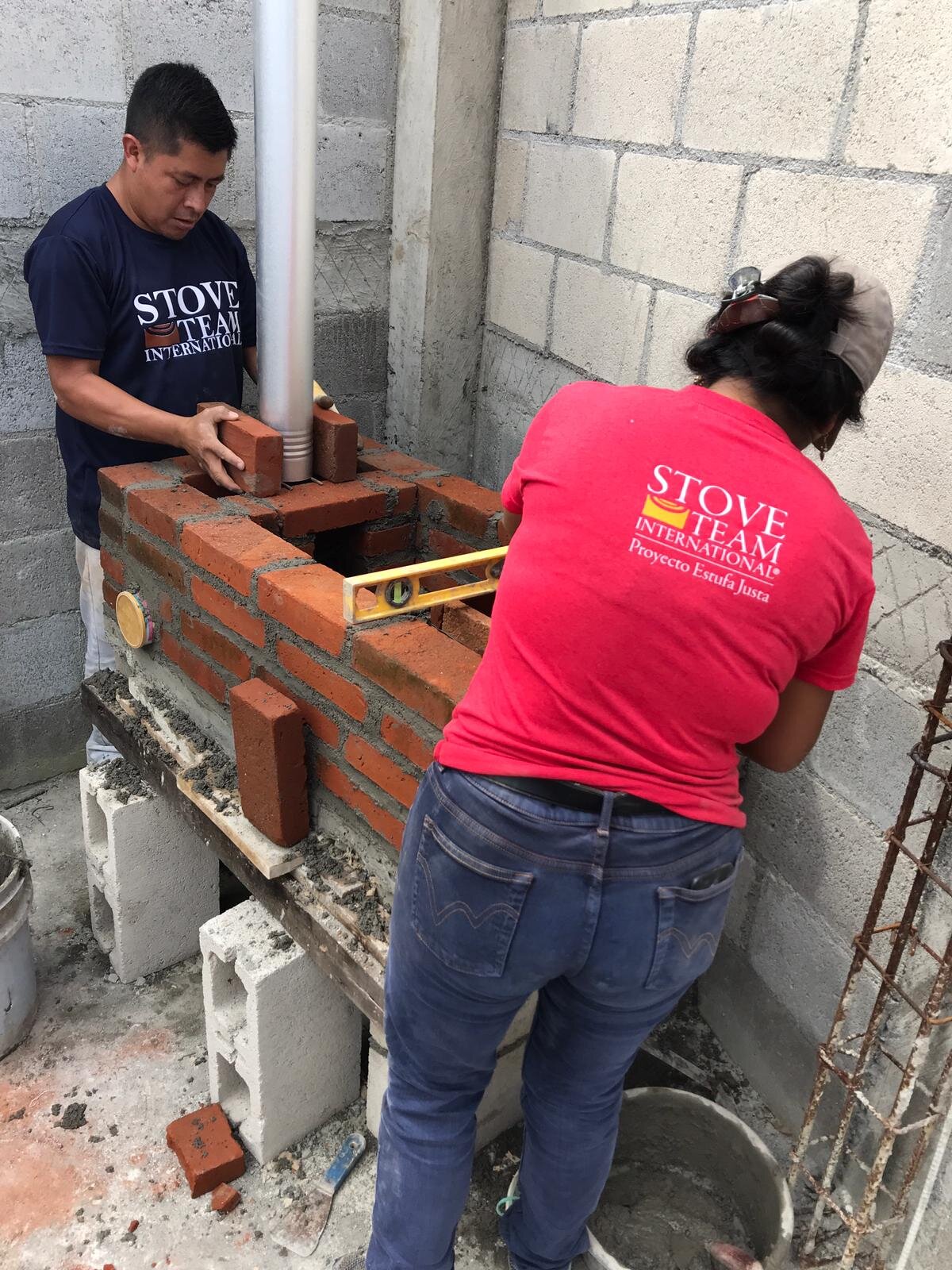Why wood?
Around the world, organizations are taking many approaches to tackling the issue of open-fire cooking. Efforts have been launched to deploy liquefied petroleum gas (LPG) and electric cookstoves to families in Africa and Southeast Asia, especially in regions without easy access to wood.
To date, efforts to implement alternative fuels have left Central America out of the picture, leaving gas and electric infrastructure unreliable and too expensive for most families.
The lack of a large-scale effort to develop this infrastructure, and the relative abundance of wood in Central America have led StoveTeam to continue our commitment to providing improved wood-burning stoves. The stoves we produce reduce smoke inside the home to nearly zero, and eliminate the danger of burns. But as the world grows, we recognize that wood-burning stoves may not be the final answer, so we remain open-minded, and light on our feet as we continue conversations with researchers and stove design collaborators.
StoveTeam’s Justa cookstoves use half as much wood as an open fire, while eliminating smoke inside the home.
“Biomass is a local, renewable, abundant, and freely available fuel in many regions of Latin America. When burned cleanly and efficiently in an improved cookstove, it can provide a less harmful source of household energy for families that would not otherwise be able to afford or have reliable access to modern fuels such as electricity and LPG.”
fuel sources like Liquefied petroleum gas (LPG) are expensive and their sources are unreliable.
Many families live on inconsistent incomes, and when there is not enough money for gas they are forced to resort back to an open cooking fire. Supply networks are unreliable: Gas canisters are old and leaky, families worry about explosions, and there is no way to tell if a canister is actually full when it’s purchased.
Not only is wood cheaper than LPG and electricity, it can be collected from forests for free when money runs short.
““I’d like to buy [gas] often but since there’s no money, our husbands aren’t working, one can’t afford it. So is it better to be able to buy chicken or use this [gas] stove?””
Latin American families have used wood to cook for generations.
““The use of wood as a cooking fuel is culturally important in Guatemala and as manufacturers of stoves it’s important to respect our customer’s culture and requirements. The flavor that wood brings to the food is important for Guatemalans and their cuisine.””
Most Central American families will tell you that the flavor of wood heat is crucial for their traditional foods, an integral part of Central American culture. Without a massive educational effort to change the culture, people will remain unwilling to cook with anything but wood.
““After over 20 years working to provide clean energy solutions in Central America, economic and social barriers have led me to the conclusion that wood is currently the most viable fuel source for cooking in the region for the foreseeable future, especially for the rural poor who we primarily serve.””
Not all stoves are created equal.
Over the years, many well-intentioned stove projects have resulted in embarrassing and even dangerous results. At StoveTeam we are proud to have collaborated with the world’s leading experts in improved cookstove technology to develop a stove that is not only designed to be easily adopted by families in Central America but also tests at Tier 5 on the ISO scale, the highest a stove can reach for indoor air pollution. And we’re thrilled to have developed an effective model for enabling local entrepreneurs to build cookstoves in their own communities, resulting in the distribution of over 81,000 cookstoves to date.
Because our stoves are built locally, they eliminate the carbon emissions of worldwide shipping, and because they are made from long-lasting brick and cement-based materials, they are durable enough to serve families for many years to come.
Local stove technicians Freddy Sanail and Betty Hernández build a Justa stove in Santiago Zamora, Guatemala.
We are always looking toward the future, and whichever fuel source makes the most sense for the regions we serve.
But for now, there are upsides to the use of wood. Unlike petroleum gas and most sources of electricity, wood is a renewable resource. Families using wood do not have to commit to a payment plan with an LPG subscription or electricity contract that could potentially bankrupt them. With an efficient wood-burning stove, a family knows they can continue using the fuel source they have always depended on, without the danger of burns, medical issues resulting from smoke inhalation, and all while using half as much wood to cook.
““Wood and other biomass, when managed and treated properly and burned in efficient devices, can provide a low-emission, affordable, readily available, sustainable energy source.””
StoveTeam is proud to endorse the Wexford Declaration.
The Wexford Declaration is a statement of support for access to safe and efficient cooking for all people around the world. The Declaration expounds a dozen points, each crucial to our ability to provide safe cooking to the world’s population. To date it has been signed by over 100 organizations and individuals connected to the clean cooking movement. StoveTeam is proud to be a proponent of this important document.
“Pollution and environmental issues are not inherent to wood, they are linked to the way the source is being managed, and how it is combusted, e.g. [whether] in the form of well prepared and dried firewood burnt in an appropriately operated improved stove.”
““[The world must] recognise that billions of people depend on wood and other biomass to cook their daily meals and that for many of them, particularly the rural poor, it will be the only fuel option available for decades to come.””




